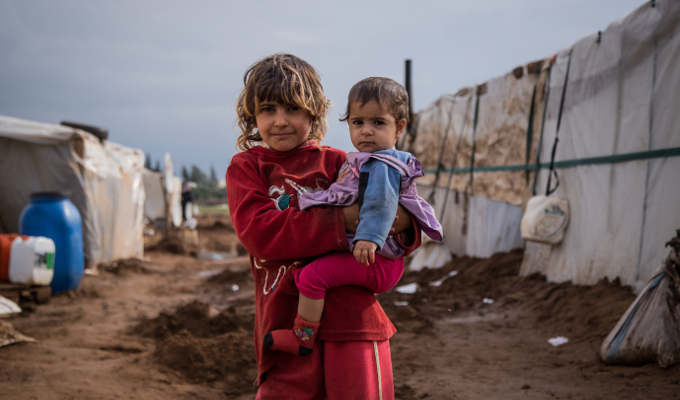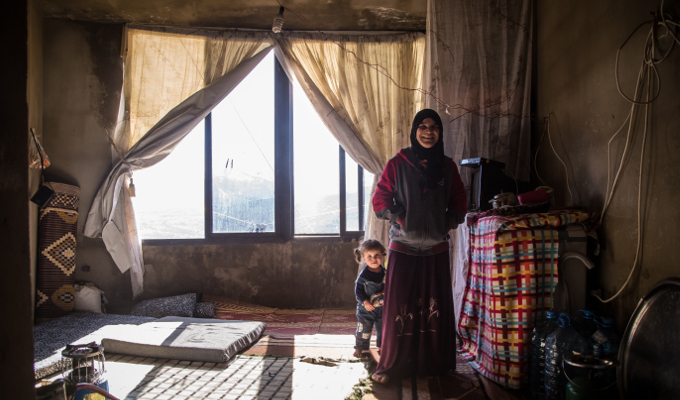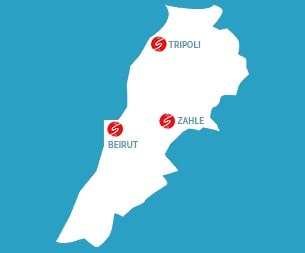6 years after the beginning of the Syrian crisis, Lebanon welcomed the equivalent of a quarter of its population: women, children and men, all Syrian refugees. In such a particular context, SOLIDARITÉS INTERNATIONAL’s teams constantly question their humanitarian response in order to ensure its relevance and quality.
With more than 1 million Syrian refugees on its territory for 4.5 million inhabitants, Lebanon is the country that hosts the highest density of refugees per inhabitant in the world. However, the refugee status is not acknowledged since the country has not ratified the Geneva Conventions. This situation forces Syrian populations to live away from sight , in informal camps or unsanitary accommodations, deprived from their livelihoods and dignity.

Water and sanitation in informal camps
“The fact that those camps where Syrian refugees are forced to live are informal, restrains their access to services provided by NGOs and the government in other camps, explains Julie Raphanel, Monitoring, Evaluation, Accountability and Learning (MEAL) coordinator in Lebanon. These precarious living conditions have an undeniable impact on populations’ essential needs.”
Water-borne diseases and respiratory infections, exacerbated by limited space, are issues SOLIDARITÉS INTERNATIONAL teams face and help to solve by intervening in the camps. “By providing them with drinking water, and by offering sanitation services, we ensure refugees have as dignified sanitary and living conditions as possible.”
SOLIDARITÉS INTERNATIONAL’s teams also experiment innovating projects such as sack farming. This technique allows families to grow vegetables and aromatic herbs and thus ensure a certain food security while making the camps greener ..

Rehabilitate in urban centres
Refugees living in urban centres also benefit from accommodation rehabilitation programs. “Building partitions, windows, insolate, put back doors” describes Julie.
Beyond individual renovations, SOLIDARITÉS INTERNATIONAL has a “neighbourhood approach” through restoration actions. Beyond improving living conditions, modernisation contributes to stabilising fragile social cohesion. Inter-community tensions are still a major issue in Lebanon today, having been the scene of sporadic violence since the 1970 s.
Financial support of the most vulnerable
“SOLIDARITÉS INTERNATIONAL also assists the most vulnerable families financially by providing them with a debit card. They can thus withdraw 175$ per months to have a minimum income.” This program was implemented thanks to the Lebanese Cash Consortium, a coordination of 6 NGOs.
“It’s an innovating practice that rethinks the classical approach by taking the issue as a whole. It prevents market collapse by injecting cash into the local economy and gives households some flexibility in their expenses.”
Constantly question the relevance of our actions
“We can’t just rest on our achievements. We constantly have to be proposing innovating programs,” explains Julie Raphanel. The follow-up and the evaluation of initiatives, is carried out by the MEAL teams who are key actors in the establishment of quality, compliant and innovating projects. They have to make sure that the solutions proposed by SOLIDARITÉS INTERNATIONAL are in line with the evolution of the populations’ needs and adapted to the particular humanitarian context in Lebanon.
Pictures: Vianney le Caer © / SOLIDARITÉS INTERNATIONAL
Support Syrian refugees in Lebanon
Lebanon
Context and action- 5.6 million inhabitants
- 112th out of 191 countries on the Human Development Index
- 122.148 people helped

